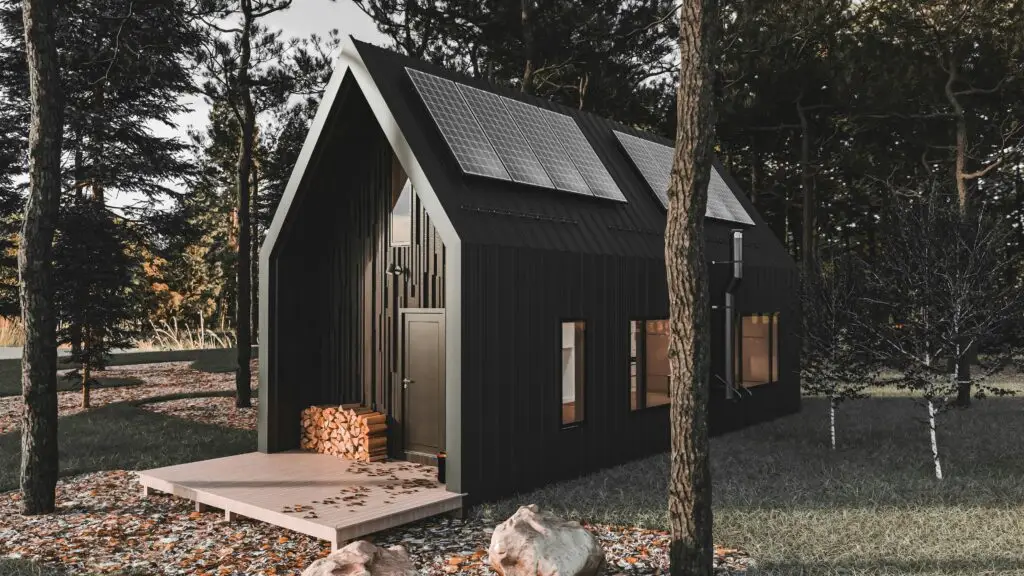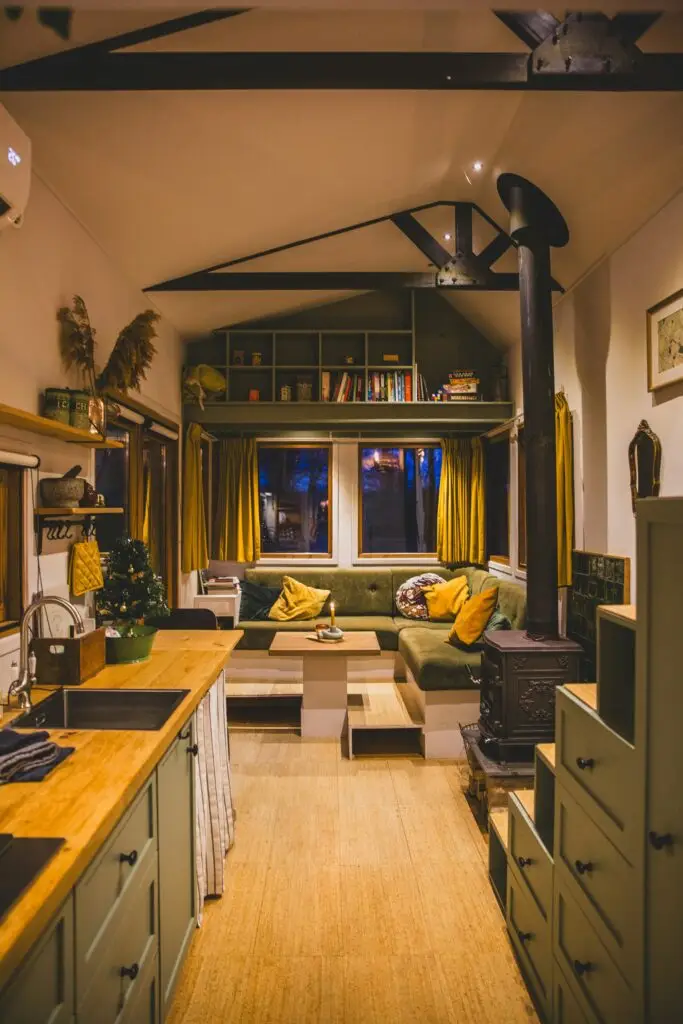Planning for retirement on a limited income requires careful consideration of housing options. In this post, we explore several strategies that can help you reduce housing costs and achieve financial security in retirement.
Tiny Homes

Tiny homes have become increasingly popular, especially among those looking to downsize and reduce their living expenses. These small, efficient homes typically range from one hundred to four hundred square feet and offer a minimalist lifestyle with lower utility costs and less maintenance.

One of the key benefits of tiny homes is their affordability. Depending on the build and location, a tiny home can cost anywhere from ten thousand to one hundred thousand dollars. For those who are handy or have some construction experience, building a tiny home yourself is a feasible option that can significantly reduce costs. Many people choose this route to save on labor expenses and to have more control over the design and materials used. However, if building isn’t your strong suit, there are also pre-built models available, or you can hire a builder to create a custom design.
Because of their small size, tiny homes often have much lower utility bills, and some are even designed to be off-grid, reducing costs even further.
Living in a tiny home requires a shift in mindset toward minimalism. With limited space, it’s essential to prioritize what’s truly important and get rid of excess belongings. This lifestyle can lead to financial freedom, as smaller living spaces often mean smaller mortgages or no mortgage at all, which frees up money to save for retirement or other goals.
RV Living
For those who love to travel, living in an RV can be an exciting and cost-effective way to retire. An RV allows you to take your home on the road, giving you the freedom to explore new places while keeping your housing costs low. Of course, this lifestyle comes with its own set of challenges, like the need for regular maintenance and the limitations of living in a small space. But for the adventurous retiree, RV living can offer an unparalleled sense of freedom.
Mobile Homes
Mobile homes offer another affordable and flexible housing solution. They provide a more traditional living experience while maintaining the advantage of being easily relocatable. This makes them an attractive option for those looking to minimize housing expenses in retirement.
One of the biggest advantages of mobile homes is affordability. Compared to traditional homes, mobile homes are much less expensive to purchase, and you can often find used mobile homes at even lower prices. This makes them an attractive option if you’re trying to stretch your retirement savings as far as possible.
Mobile homes typically have a lower cost of ownership compared to traditional homes, and they are often located in communities that offer amenities like clubhouses and pools. This can be especially appealing for retirees looking for a sense of community. Additionally, mobile homes are generally easier to maintain, reducing ongoing costs and stress.
Non-Profits and Affordable Housing
Non-profit organizations play a crucial role in helping individuals and families find affordable housing. These organizations often work to bridge the gap between what low-income families can afford and the actual cost of housing. They provide a variety of services, from financial assistance and affordable rental units to homebuyer education and down payment assistance.
One prominent example is Habitat for Humanity, which helps families build and improve places to call home. Through volunteer labor and donations, Habitat for Humanity constructs affordable housing for those in need. Homeowners typically pay a no-profit, low-interest mortgage, and they often contribute “sweat equity” by helping to build their own homes. This model not only provides affordable housing but also instills a sense of pride and ownership in the new homeowners.
Another important organization is NeighborWorks America. This network of local non-profits offers a range of services, including affordable rental properties, homeownership counseling, and financial coaching. NeighborWorks organizations often partner with local governments and businesses to provide comprehensive housing solutions that address the specific needs of their communities.
For those who are already homeowners but struggling with housing costs, non-profits like the National Foundation for Credit Counseling (NFCC) offer free or low-cost counseling services. These services can help individuals manage their mortgage payments, avoid foreclosure, and explore options like refinancing or loan modification.
Finally, many non-profits focus on providing affordable rental units, particularly for seniors, veterans, and people with disabilities. These organizations work to develop and maintain low-income housing, ensuring that even the most vulnerable populations have a safe, stable place to live.
The Importance of Going into Retirement Mortgage-Free

One of the most significant financial milestones you can achieve before retiring is paying off your mortgage. Entering retirement without the burden of a mortgage payment provides a level of financial security and peace of mind that can greatly enhance your quality of life during your retirement years.
For many retirees, housing is one of the largest expenses. By eliminating your mortgage, you free up a significant portion of your income, allowing you to allocate those funds toward other important areas like healthcare, travel, or simply enjoying your retirement without financial stress. Without a mortgage, you can stretch your retirement savings further, making it easier to live comfortably on a fixed income.
Moreover, being mortgage-free reduces the risk of losing your home in the event of a financial emergency. As you age, unexpected medical expenses or changes in your income can create challenges. Without the obligation of a monthly mortgage payment, you have greater financial flexibility to handle these unexpected costs.
Paying off your mortgage before retirement also aligns with the goal of living a debt-free life. Many financial experts, like Dave Ramsey, emphasize the importance of eliminating debt to achieve financial freedom. A mortgage-free retirement not only reduces your monthly expenses but also decreases the stress and anxiety associated with owing money.
In addition to the financial benefits, there’s also a psychological benefit to owning your home outright. Knowing that your home is fully paid off can provide a sense of accomplishment and security, which is particularly valuable during the transition into retirement.
Stay Informed and Plan Your Retirement with Confidence
Planning for a low-income retirement doesn’t have to be overwhelming. Sign up for our newsletter to get the latest tips, strategies, and resources delivered right to your inbox. Whether you’re exploring affordable housing options or looking for ways to eliminate debt before retirement, we’ve got you covered. Don’t miss out—join our community today and take the next step towards a secure retirement!
Organizations Mentioned:
- Habitat for Humanity: https://www.habitat.org
- NeighborWorks America: https://www.neighborworks.org
- National Foundation for Credit Counseling (NFCC): https://www.nfcc.org



